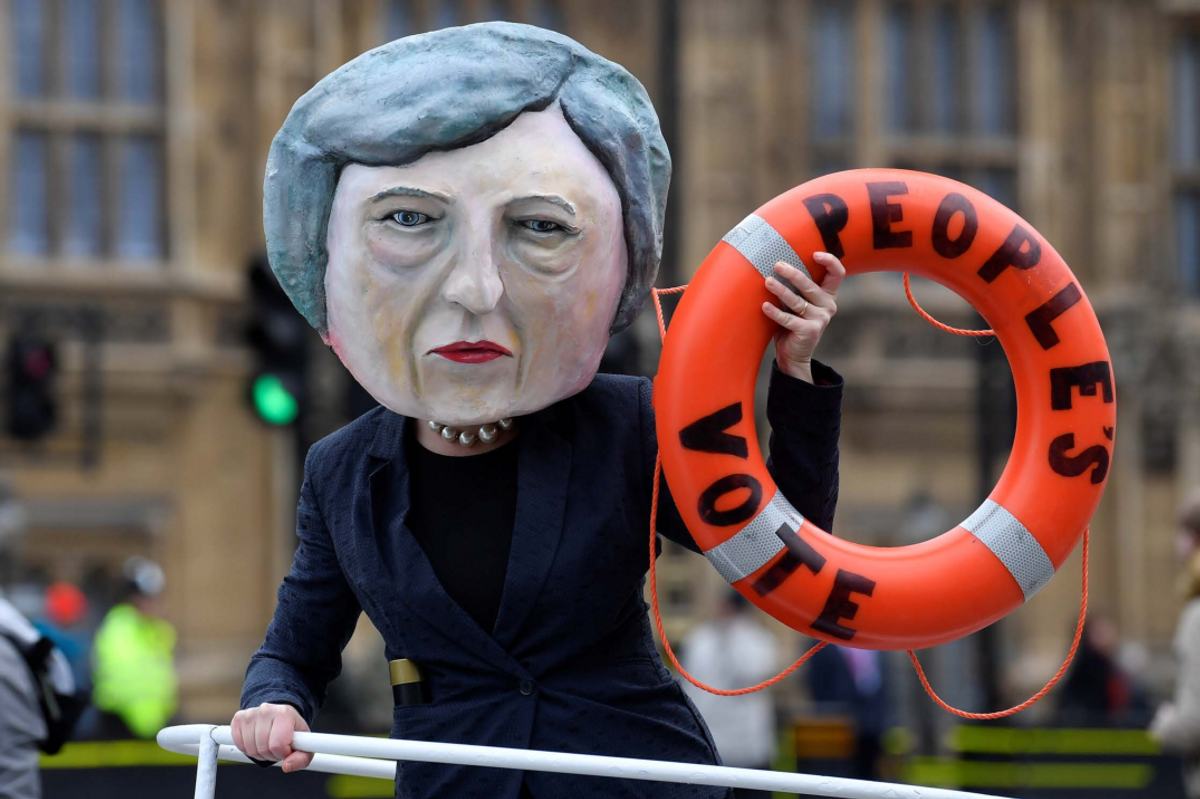Prime Minister Theresa May yesterday suffered the worst parliamentary defeat for a British leader in 95 years, with the House of Commons voting 432-202 to reject her proposed withdrawal plan from the EU. Given the size of the rebuke, why is Theresa May not politically dead yet?
The fact of her survival suggests that far from a Brexit breakthrough, Britain is now heading for a period of severe political paralysis. Here's why:
A Domestic Stalemate – After May's defeat yesterday, the opposition Labour Party immediately announced its intention to trigger a motion of no confidence. A vote on the motion will take place this evening, which, if successful, would prompt new elections if another figure isn't able to form a government within 14 days. To topple May today, Labour would need significant Conservative defections.
But although 118 of 316 Conservative MPs opposed May's Brexit deal, they'll be reluctant to bring her down simply to hand power over to the opposition. Nor can Conservatives replace her with an alternative figure this year, after a previous attempt to do so failed. For better or worse, May's likely to soldier on.
Negotiating Plan B – That leaves as the only real option negotiations with EU leaders to try and reach a deal that can gain broader support at home. The timeline is tight: in just three days, May must deliver a Plan B to Parliament.
The size of yesterday's defeat suggests that it will take more than modest tweaks to get such a deal across the line. Instead, May will now face growing pressure to seek a much "softer" Brexit that maintains close ties between the UK and EU.
This approach has two distinct advantages: first, members of the opposition Labour Party might be persuaded to support it, though hardline Conservatives would almost certainly bolt. Second, EU leaders will be inclined to be more lenient if it means preserving close relations with the UK down the road.
But May needs more time. Britain is currently scheduled to leave the EU on March 29 – with or without a deal. EU leaders in Brussels are likely resigned to the necessity of extending that deadline to avoid an economically disruptive "no-deal" scenario. But even if May returns home with a "better" agreement, there's no guarantee that it will pass in Parliament.
The bigger problem is that yesterday's vote didn't resolve the basic question of whether there's actually a specific Brexit plan that a majority of UK parliamentarians can actually agree on. As that reality starts to sink in, politicians on both sides of the issue may decide the only way forward is a second referendum to try to clarify the desire of the British people.



















